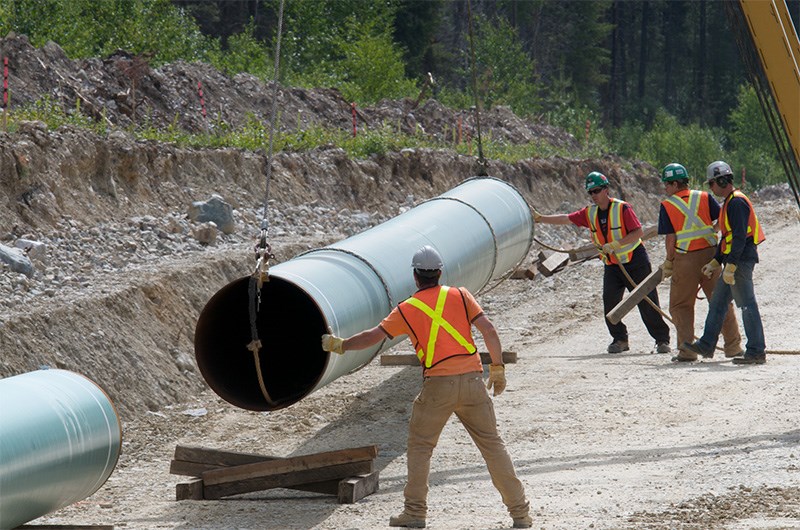Kinder Morgan’s proposed oil pipeline could cost Coquitlam taxpayers millions for extra maintenance, administration and construction costs, according to a new study.
And next week, the city plans to make its case for compensation to the National Energy Board.
Mayor Richard Stewart said the NEB hearings into the detailed route that started this week in Burnaby are the city’s last hope for recognition after exhausting efforts to win support from the provincial government and acknowledgement of its claim by Kinder Morgan.
“I think council has taken a firm position that we will fight to the end to get compensation for the costs associated with having the pipeline cut through our community,” Stewart told The Tri-City News.
In a statement, the company said it is well aware of the city’s concerns and is committed to mitigating impacts of the expanded pipeline.
Coquitlam's position is that it expects to shell out $59 million over 50 years — an average of almost $1.2 million a year — to deal with issues related to the fact that the pipeline will be sunk into the ground under city streets near other utilities in the Pacific Reach business park area.
That means, based on the city's experience with existing pipeline, every time it has to work around Kinder Morgan infrastructure, it has to get a permit, which delays repairs, and pay extra costs to do the work. In one instance, for example, the city couldn’t work on a water main break on Cottonwood Avenue until it obtained proper permits and waited for a Kinder Morgan inspector.
“We’re not allowed to to fix a pothole," Stewart said. "There’s all sorts of rules around doing anything round the pipeline — all good safety reasons for the rules."
But even regular routine maintenance and road replacement projects are more costly when having to deal with the pipeline, he said.
Coquitlam’s concerns are supported by consultants Associated Engineering, which originally pegged the costs as $28 million but projected much higher costs at $59 million over 50 years once more information became available.
Coquitlam’s costs are also substantially higher than those in other cities, according to the report. Burnaby’s extra costs are expected to be about $8.1 million over 50 years while Surrey’s are expected to be $18.9 million and Langley Township’s $18.1 million.
Kinder Morgan has said that the taxes it pays for running a pipeline should cover the costs but Stewart said that might be the case in Burnaby, where there are tank farms and other infrastructure, but not in Coquitlam, where there is just a pipeline.
The city wants acknowledgment of historic costs, too, he said.
Kinder Morgan has pledged $1 million towards upgrades at Mackin Park to compensate for disruption during construction, but only if the project goes ahead.
The U.S.-based company that is planning a $6.8-billion project to twin its pipeline from Alberta to Burnaby is aware of the city’s concerns, according to Ali Hounsell, spokesperson for the Trans Mountain Expansion Project, who noted that Kinder Morgan expects to double its tax payments to $443,000 a year after the expansion, based on 2013 tax projections.
“Our intention is not to be a burden or a 'cost' to any municipality as a result of the project or our operations,” Hounsell said.
Still, Stewart is concerned the city will be subsidizing the project if it goes ahead.
“We don’t get to determine the route and we can only demand, and we have, that with the route they take, they protect the public and save the taxpayers from having to subsidize the pipeline.



